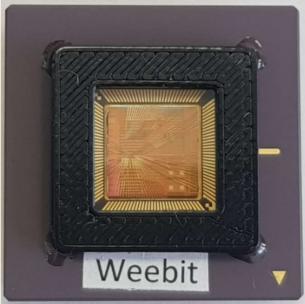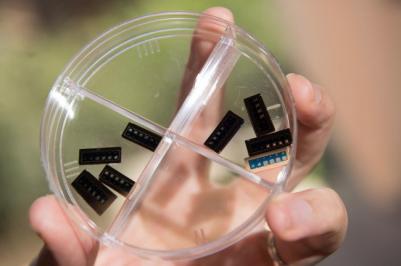Weebit Nano raised $2.16 million to advance its SiOx RRAM technology
Israel-based SiOx RRAM developer Weebit Nano has raised $3 million AUD ($2.16 million USD) via a share placement and the company also plans to raise a further $1 million soon. Weebit's board of directors invested $150,000 as part of this placement.
Weebit recently announced that it has packaged its first memory devices into chips, which can now be shipped to its partners. The first RRAM memory will be delivered to universities to research the use of ReRAM technology in neuromorphic computing, and additional chips are planned to be shipped to commercial partners.




